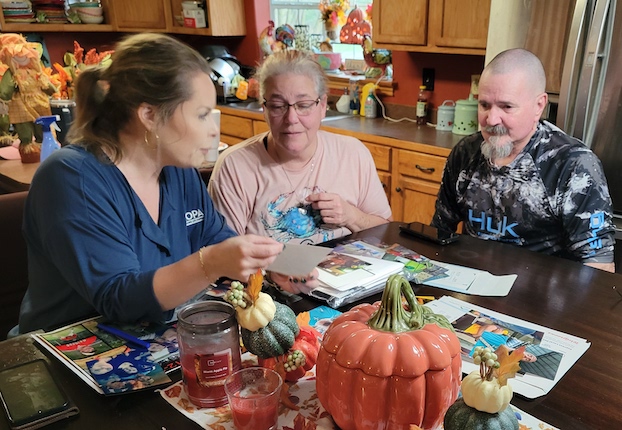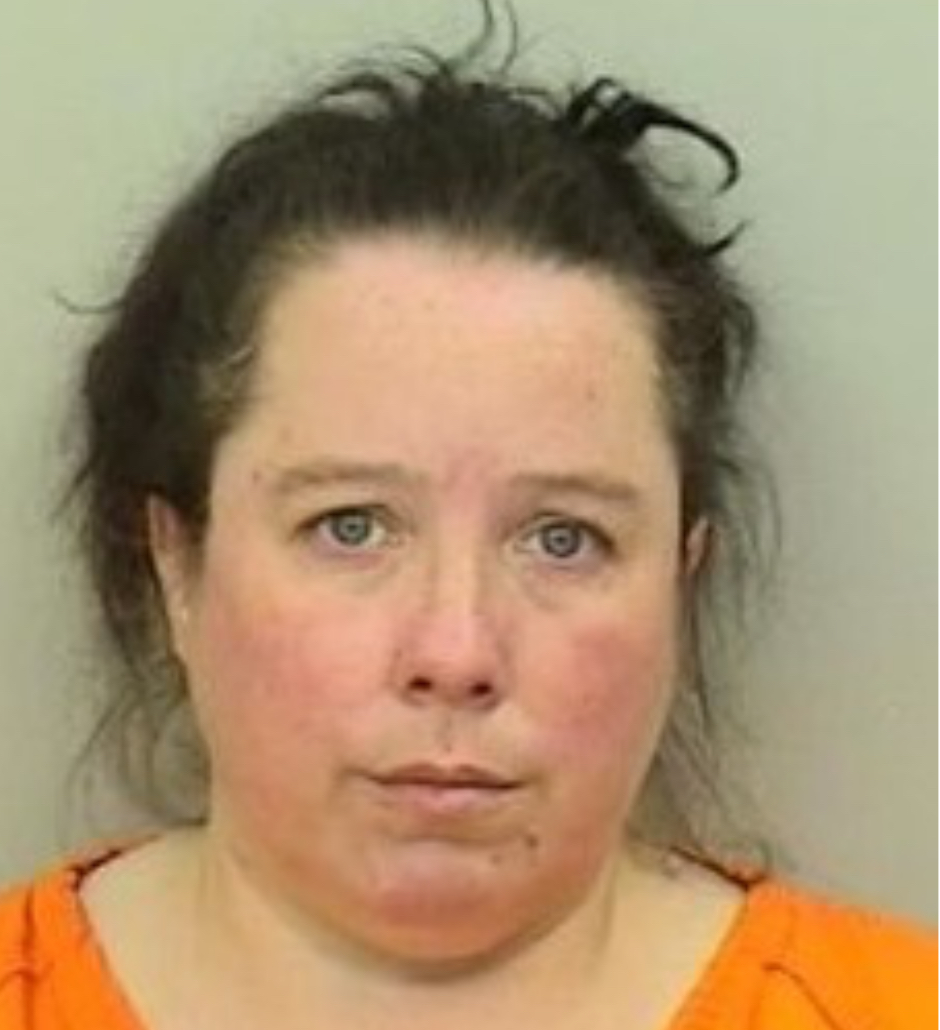Organ donation: Family turns tragedy into blessing
Published 3:34 pm Saturday, December 28, 2024

- Suzanna Morton and Melissa and John Day look at photos of Cody. (Special to the American Press)
When Melissa Day received the phone call from a Lake Charles hospital on Monday, July 19, 2023, the person on the other end of the line told her to come pick up her son; they were discharging him after an overdose. It wasn’t the first time she had received such a call.
“He was three months clean,” Day said, “and it seemed like this time was different.”
She called her husband, John. “I found Cody,” she told him, and imagined picking up her 28-year-old, getting him in the truck and “giving him an ear full.”
Trending
“I was going to chew him from one end to the other,” she said.
She never got the chance. He was barely breathing when she got there. How his condition somehow went from ready to be discharged to what she saw when she arrived is a mystery — one she hopes to understand better some day.
Some say the loss of a child is painful because it violates the natural order of things.
Day, like other parents, knows that she will never get over his death, but she has found some consolation in knowing that his organs are helping others.
“He would give you the shirt off his back,” she said, sharing some photos. Cody posing in his Reeves High School Red Raider Baseball uniform. Cody holding his nieces and nephews. Cody striking a silly pose. Cody in grade school with his short hair cut sticking up every which way. Cody with his father after a successful duck hunt. His friend, Olivia, shared a video of Cody singing “Fancy” to the top of his lungs.
He was known as a colorful character who had a great sense of humor and enjoyed making others laugh. He was a hard worker, proud of his work ethic, always had a job, went to work every day and made good money, according to his mother, father and Olivia. He cooked for the family on Saturday nights in the barn, as he listened to the radio, often singing along.
Trending
Although Day was not surprised Cody was a registered organ donor, she did not know that so few people who register to donate organs are able to do so, only 2-3%, according to Suzanna Morton, Louisiana Organ Procurement Agency. The criteria differs from hospital to hospital, but a scale that indicates the level of consciousness of a patient after a brain injury, is one of the factors used to make the determination.
In Cody’s case, he was able to donate his left kidney to a female in her 40s. His liver recipient is a man in his 30s. His heart beats in the body of a man in his 60s, and his lungs are at work in a man in his 60s. His organ and tissue donation will be used for research and education to help advance diagnosis and treatments. His corneas went to the Eye Bank.
When the corneas were mentioned, discussion turned to whether people who wear glasses can donate. Cody didn’t wear glasses.
“You can actually be blind and donate your corneas,” Morton added. “The cornea is typically affected by astigmatism, and they can actually correct the astigmatism when they stitch it onto the recipient.”
Recipients were selected from the National Waiting List, which is carefully regulated, according to Morton. LOPA uses a national computer system managed by the Organ Procurement and Transplantation Network which matches donor organs with information like blood type, urgency, organ size, location to the donor hospital.
Pediatric organs generally go to pediatric patients but a 55-year old has received the heart of a 15-year-old, and the oldest to donate organs, according to Morton, was 92-year-old who donated her liver. The rumor about her was that she only had a drink at weddings, and some LOPA staff have speculated on the area of the state in which she might have lived.
At the hospital where Cody died, the staff lined the hallway for his Honor Walk. As Jo Dee Messina’s “Heaven Was Needing a Hero” played in the background, family and friends walked the gurney from the ICU to the operating room.
When donors’ bodies are prepared for funeral services and burial, they show no signs that the organs that once kept it functioning are already helping others live.
“He looked just like our baby,” Day said.
She has had one dream about him. Cody told her he loved her and gave her a hug. Day said it felt real because she could feel him when they hugged.
Olivia told about a child in the neighborhood who fell into a swimming pool after Cody’s death. Neither Day nor Olivia were aware the child knew Cody. For one thing, she was very young, but after she was pulled from the water, she told her rescuers that she saw Jesus and Cody.
The families of donors are not told much about organ recipients. She may get to meet them one day. She may not want to.
They might not want to meet Cody’s family, and there’s no timeline on when it will happen, if it ever does.
She did find out that Cody’s organs went to recipients out of state. She likes to think of it as Cody finally getting to travel, something he always wanted to do.
Charlotte, Cody’s sister, called during the interview, and said Cody’s organ donation was perhaps her only consolation after his death because it at least attested to his spirit of giving and added purpose to his life and death. His mother agreed.





